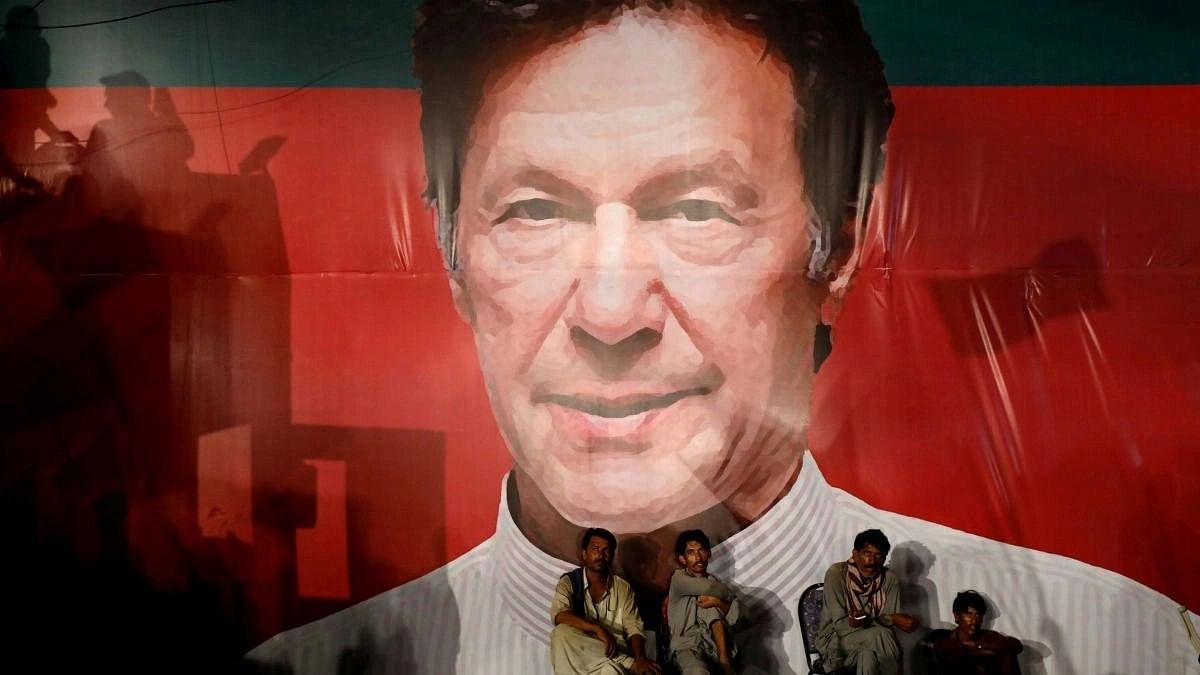
Khan, the founder of the Pakistan Tehreek-e-Insaf (PTI) party is incarcerated at the high-security Adiala Jail in Rawalpindi, convicted in the Toshakhana corruption case and being tried under multiple other cases.
Credit: Reuters File Photo
Islamabad: A recent article in a British publication attributed to Imran Khan was not a work of artificial intelligence but was authored by the jailed former Pakistan prime minister himself, his party said on Tuesday.
The write-up, published in The Economist on Thursday with the title ‘Imran Khan warns that Pakistan elections could be a farce', raised serious doubts over whether the scheduled February 8 polls in Pakistan will be held as announced.
Khan, the founder of the Pakistan Tehreek-e-Insaf (PTI) party is incarcerated at the high-security Adiala Jail in Rawalpindi, convicted in the Toshakhana corruption case and being tried under multiple other cases.
In the write-up, which drew sharp objections from the caretaker government, the 71-year-old former prime minister reiterated his “engineered” removal from power in 2022 by the establishment “under pressure from America” and the lack of “level playing field” in the elections.
The write-up has already been denied by both the Pakistani government and the US Department of State.
Several observers had doubts over whether the PTI founder had personally penned the piece, according to the Dawn newspaper. It was also reported that the former-cricketer-turned-politician said he did not write the essay himself, rather it was based on points he had dictated, which were put into words through artificial intelligence.
Taking to social media platform X on Tuesday, his party said, "The said piece has been authored by the PTI Chairman-for-life, Imran Khan, vindictively incarcerated at Central Jail, Rawalpindi. In no way, this has been compiled through the use of artificial means, including artificial intelligence."
“It is clarified that the news/reports carried by local media on the contents and mode of publication of an article by the PTI Chairman-for-life in a foreign publication The Economist does not reflect the actual state of facts regarding the matter,” a statement released by the party’s Central Media Department said.
The former ruling party, which rose to power after the 2018 general election, urged the local media to “present the facts and carry this clarification in its true letter and spirit by publishing it at the same prominent place in their upcoming editions”, Geo News reported.
Meanwhile, the PTI founder too addressed the doubts in a talk with journalists at the high-security Adiala Jail on Monday and said he had “verbally dictated” the article.
On Friday, Caretaker Information Minister Murtaza Solangi said the government will be writing to the editor of the British publication The Economist in connection with an essay attributed to incarcerated Khan.
“We believe it is critically essential to uphold ethical standards and promote responsible journalism,” the paper quoted Solangi, a former journalist, as saying.
“We would like to know how the editorial decision was made and what considerations were taken into account regarding the legitimacy and credibility of the content by The Economist,” he said.
“We would also be interested to know if The Economist has ever published such ghost articles by jailed politicians ever from any other part of the world. If jailed convicts were free to write to the media, they would always use the opportunity to air their one-sided grievances,” the minister said.
Khan served as prime minister of Pakistan from August 2018 to April 2022. He was ousted through a vote of no-confidence in April 2022.
After his removal from office in April 2022, Khan went on an international media blitz and appeared on several major global media outlets, but this stopped after his incarceration, as access to the PTI chairman became limited to his lawyers and family members.
However, in recent months, the party has found unconventional ways to deliver his message: at a recent virtual rally, an AI-generated address was delivered in Khan’s voice.
He recently wrote to Chief Justice Qazi Faez Esa, requesting the top judge to protect the party’s fundamental rights, according to the Dawn report.